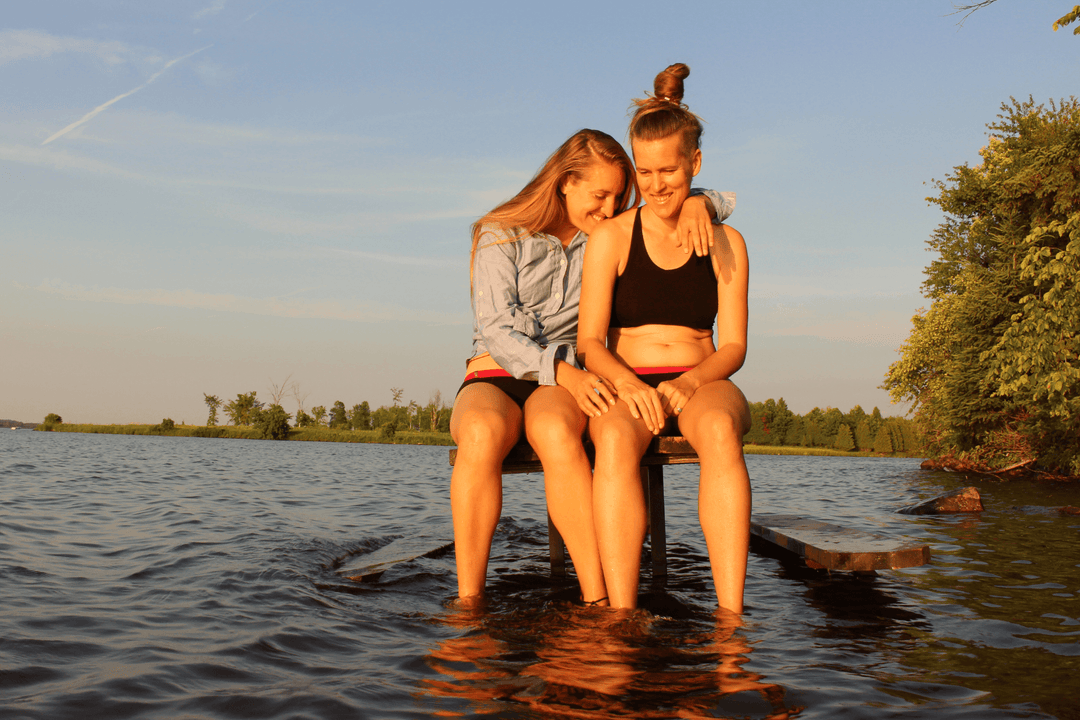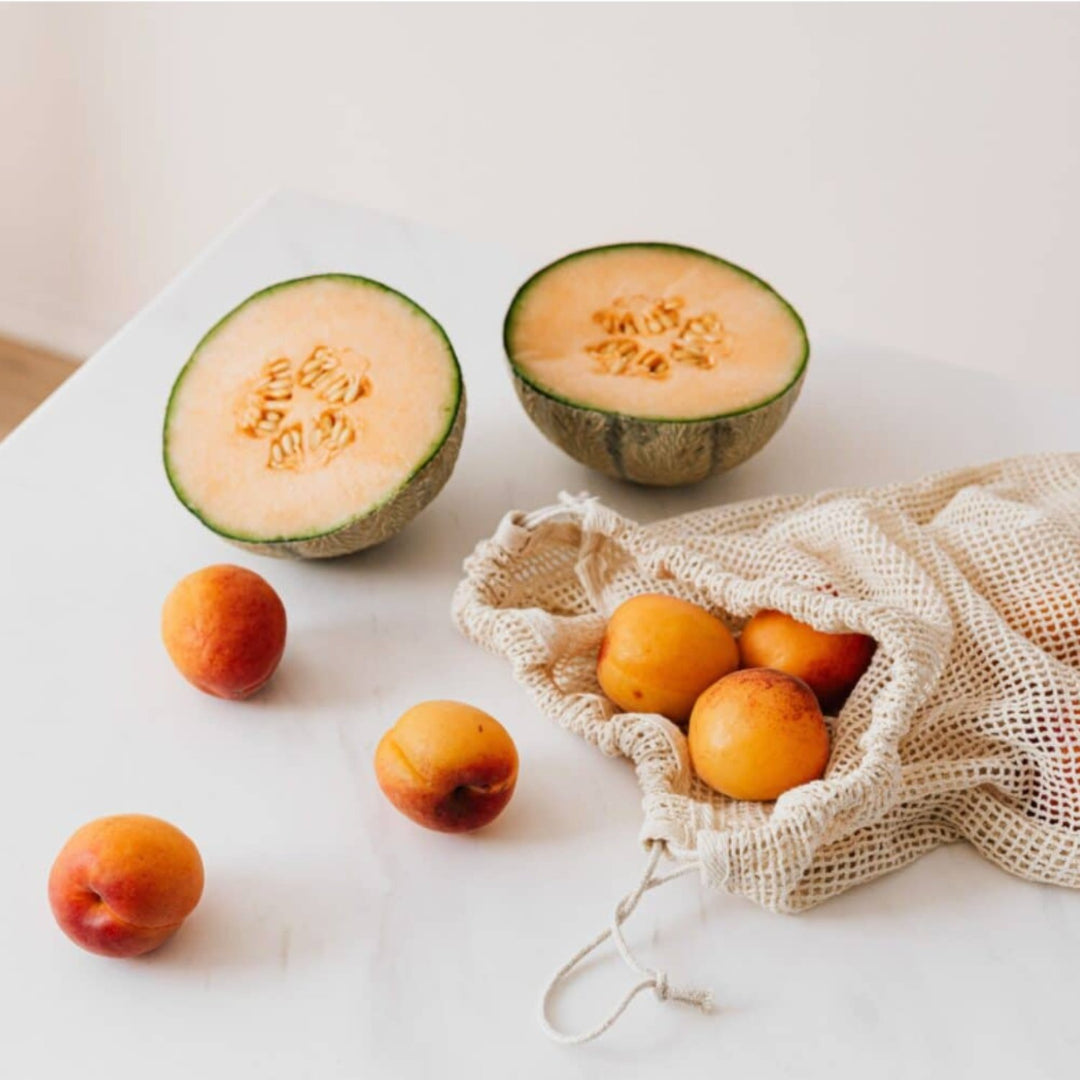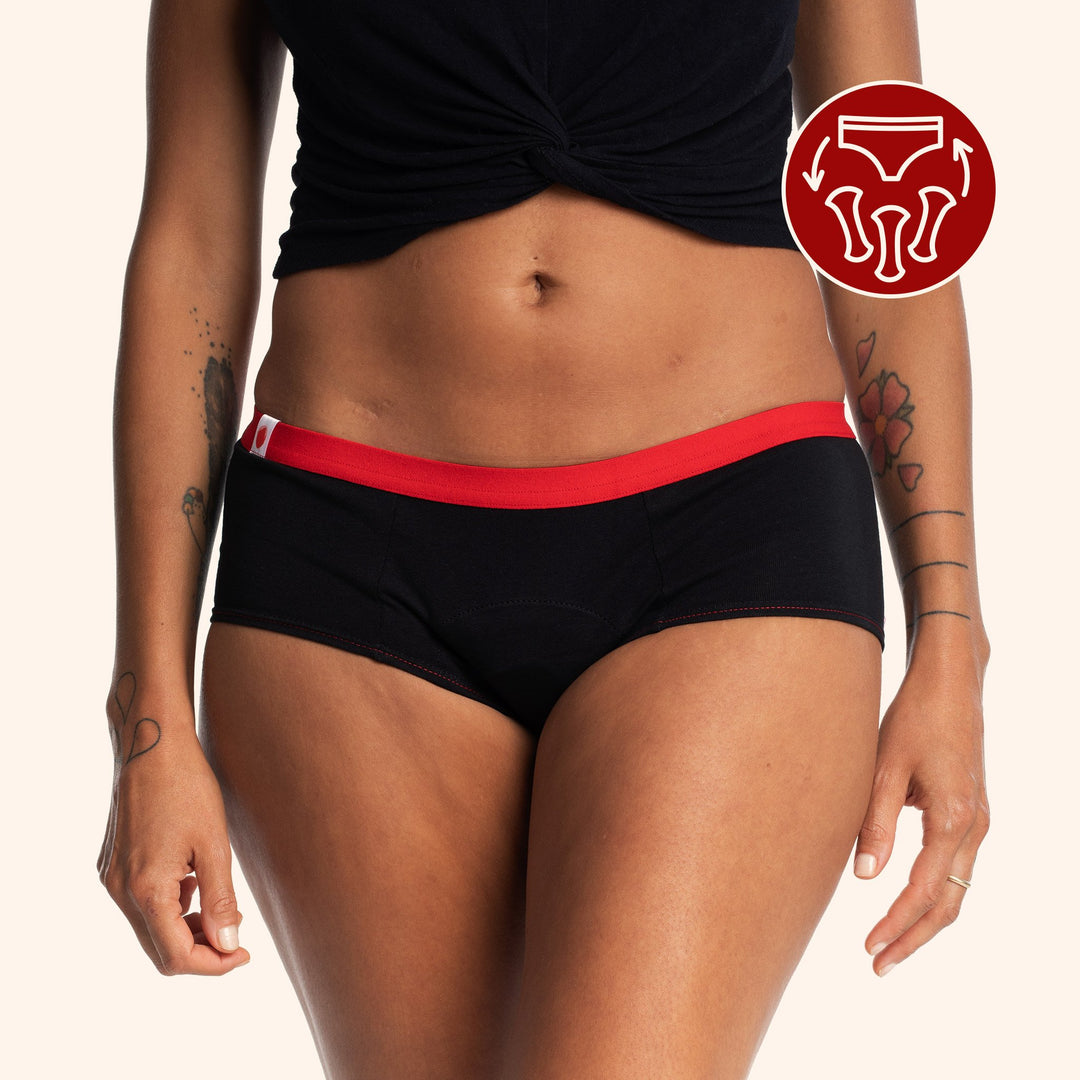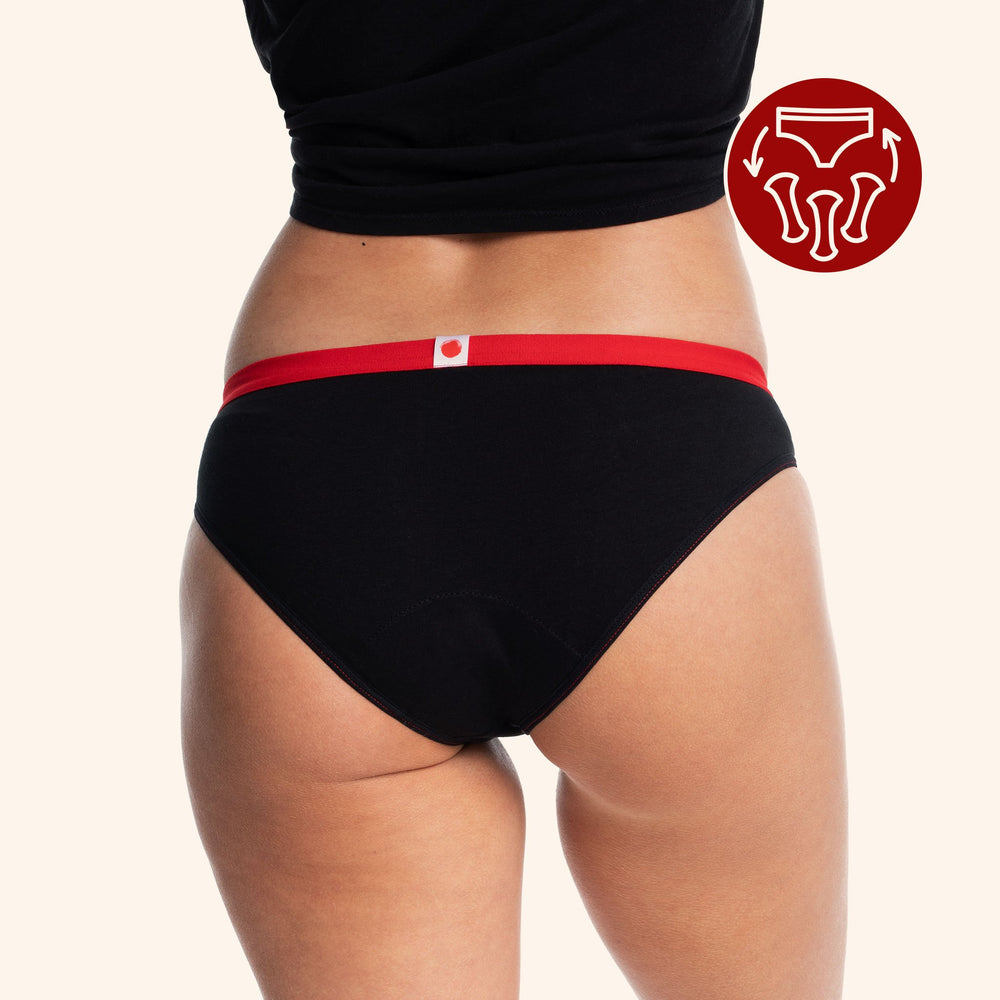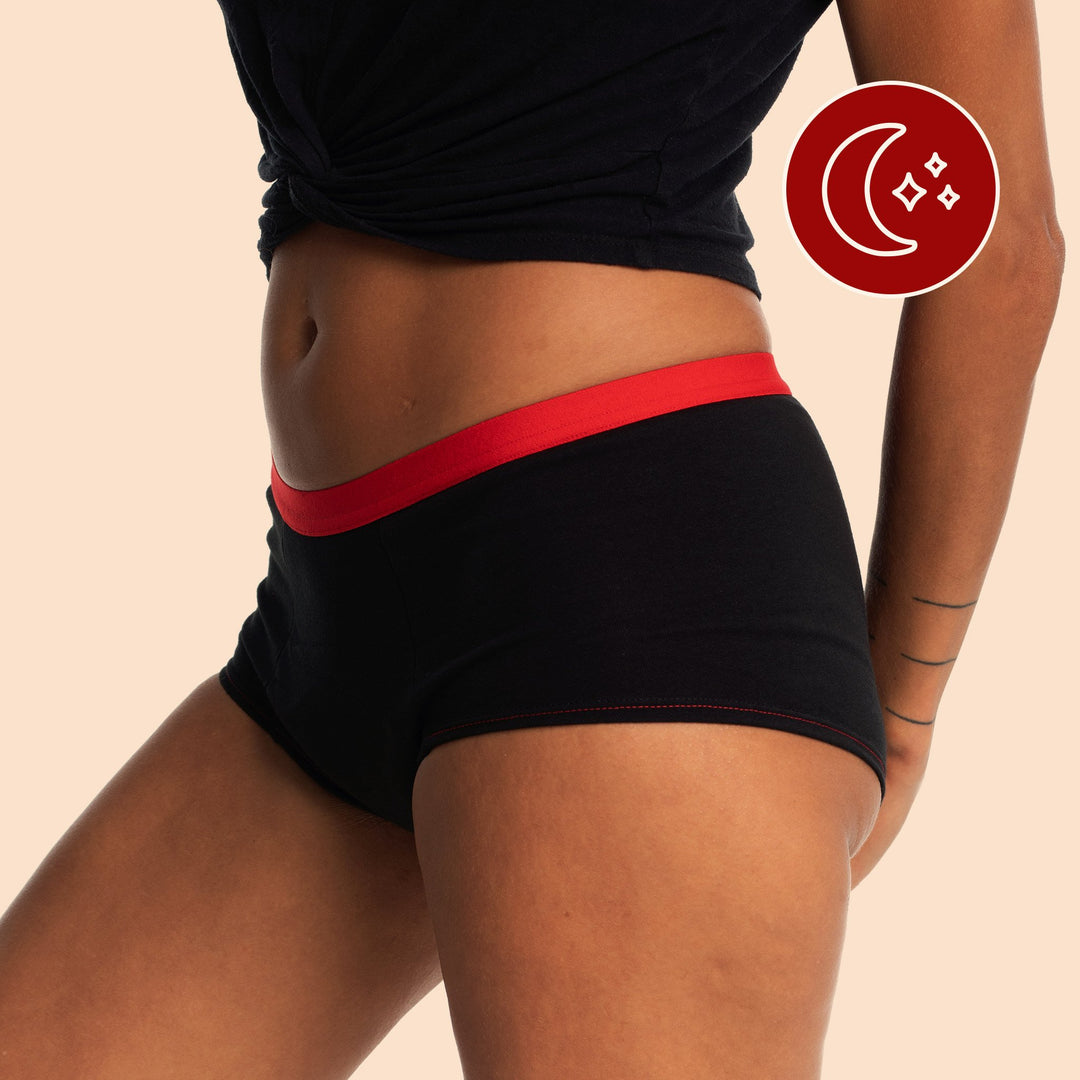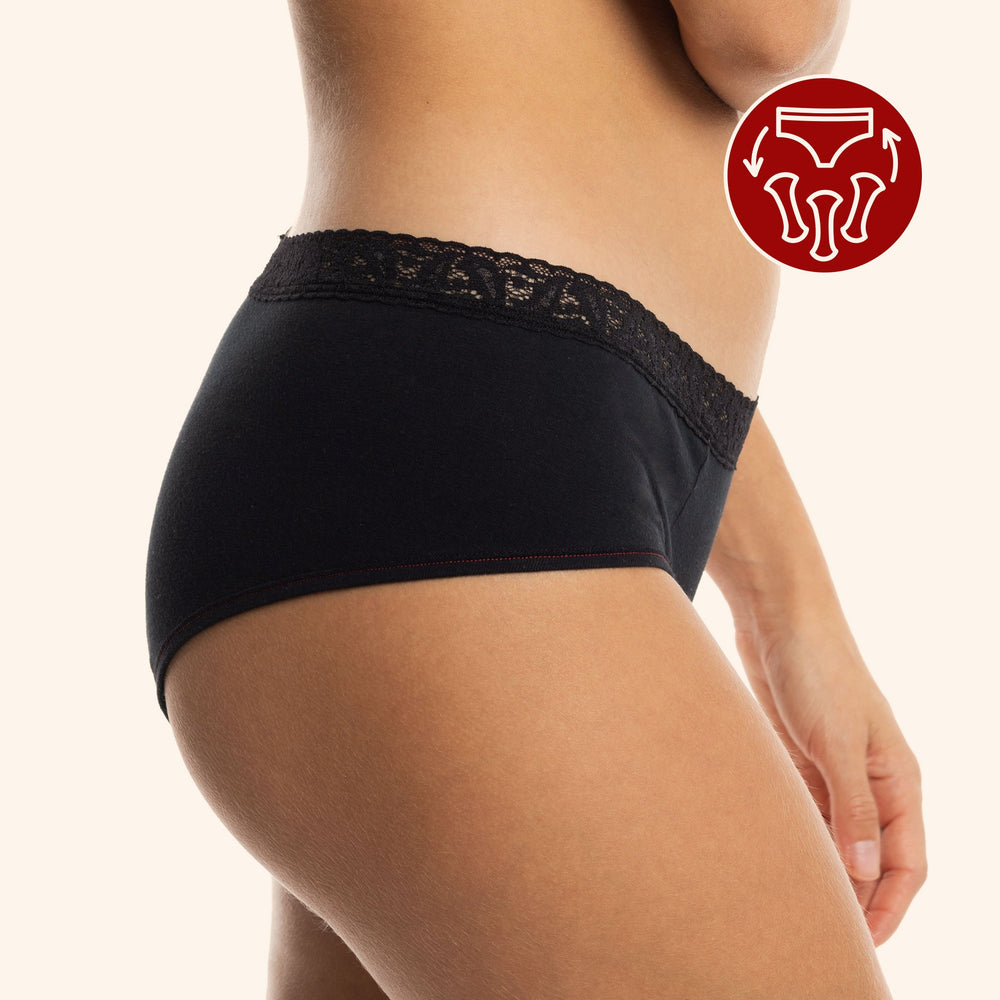
Earth Day is behind us, but we should be reflecting on how to become a better ally to our dear planet every single day. At a time when the climate crisis can no longer be ignored, a vibrant community of people who care about the well-being of the Earth is coming together.
During our last Red Table, we had the honour of welcoming Maude Carmel and Andréanne Tenhave who, each in their own way, both campaign for a greener and more sensible future. They generously shared with us concrete gestures to move toward an eco-conscious lifestyle.
Maude Carmel

Originally a columnist, host, editor, and actor, Maude has been using her social networks for 4 years to raise awareness about climate issues among her followers. Despite the fact that she now lives in the suburbs, she uses her creativity to maintain her eco-responsible urban habits. You can check out her educational content on Instagram and YouTube, and you can also find her columns in Le 24heures.
Andréanne Tenhave

Wild woman, activist of the Earth, and druidess of the Forest, Andréanne Tenhave - also known as the Authentic Andréanne - is on a mission to create a sustainable and safe world for all species. A multipotential teacher and student, she experiences and shares daily what nourishes her personal development: slowly and consciously exploring her relationship with Mother Nature, her inner nature and human nature, and her gift for ritualizing everyday life and human connections. Get inspired by her content on Instagram and Facebook!
How can you connect with nature?

- Taking the time
Whether you live right downtown or in the heart of nature, the key is taking the time. Go outside, stop in front of a tree, a flowerbed, or anything that's alive. Take the time to be present and connect with what's there.
- Exploring with all your senses
Each of our senses can help you feel the language of nature. For example, you can listen to the wind as it rustles the leaves, contemplate mushrooms growing on a tree trunk, savour the smell of wet earth, touch the moss you find in the woods, or taste the flowers you find growing wild (if you know how to identify plants). Doing any of that will give you a moment of earthly and perosnal connection, guaranteed!
- Observe the details
Spring is a wonderful season to indulge the details of nature and its cycles. What grew this week that wasn't there last? Whether you're in Hochelaga, Abitibi, or Saint-Hyacinthe, nature is the same everywhere, even if it's not in the same abundance.
- Getting to know living things
By learning to name plants, flowers, and trees, our connection to nature grows, and our interest in protecting it grows in tandem! You start to realize that even plants that nomrally seem pretty banal, like dandelions or coltsfoot, actually have magnificent properties and deserve to be honoured.
Food self-sufficiency and conscious cooking
- Gardening, possible in all lifestyles
We get it, gardening in the suburbs is way easier than in a tiny backyard in Saint-Denis! But it's possible to create a small urban garden on a balcony so you can enjoy fresh seasonal vegetables. Being able to eat what we grow significantly reduces our carbon footprint, and it's a way tastier experience too.
Andréanne is living proof that gardening is possible even with a nomadic lifestyle! When she lived in her van, she volunteered to harvest garden vegetables on a local farm in exchange for parking.
"I feel like no matter where I sow, I'm going to harvest somewhere else." - Andréanne Tenhave
- Eating consciously
The first step to adopting a healthier and more responsible diet is to be aware when you're eating. All you have to do is compare the taste of a tomato you grew yourself to one you bought at the grocery store. You can also have fun experimenting with textures and colours. In short, make cooking an experience of flavourful pleasure.
Once you become mindful of what you put in your body, you start wanting local and high-quality products, not stuff that's packaged in plastic and shot full of pesticides.
- Don't take anything for granted
Eating is a recurring activity that we tend to trivialize. There's no question that by eating fast food on the go, we sometimes forget to feel gratitude for all the abundance that the Earth gives us. That's why it's important to understand where our food comes from. Is it a vegetable that grew on the farm down the street, or did it travel thousands of miles in a truck before landing on our plate? It's okay to spoil yourself from time to time with imported food as long as you don't think it's normal to eat 4 mangoes a day in February!
We also take a lot of the people who feed us for granted to. But it's not easy to be a farmer! They work long, exhausting days. One way to thank them is to encourage them.
"The extension of the heart is the hands. Farmers constantly have their hands in the ground, and I honour that." - Andréanne Tenhave
- Adopt healthy eating habits
As engaged citizens, we have a duty to question our food system from time to time and make aligned choices. If you have the privilege of having the mental space to change your habits, here are some you can integrate into your daily life:
- Go grocery shopping on foot
- Buy in bulk
- Eat a local diet that's as plant-based as possible
- Learn about food baskets in your community and partner with a family farm
- Check out summer markets and buy directly from growers Food isn't always certified organic (organic certification is expensive for small producers), but the growing methods are often organic nevertheless.
Being an eco-responsible parent: Can it be done?
The answer is yes, but obviously not without a few pitfalls! It could be that you've imagined an ideal version of the eco-conscious mother and that a lot of your expectations end in disappointment. That's okay! You also have to learn to let go. Here are some ways to learn about eco-parenting.
- Use washable diapers: Despite our good intentions to prioritize washable diapers, it's possible that, at the end of the day, we're just too tired to deal with a huge pile of laundry, and our hormones are saying, "Hey, give yourself a break and use disposable diapers for a couple weeks!" No worries! There's no need to be perfect.
- Use menstrual undies during your postpartum. They're much more comfortable and zero waste!
- Ease your car addiction: If you're lucky, you'll find a daycare that's within walking distance. Who knows?
- Find second-hand clothes and toys : It's time to dig into your phonebook (if those exist anymore) and form an allegiance with a mother who wants to get rid of things she doesn't use anymore. If you don't know any mothers nearby, thrift shops are your best friend!
- Raising awareness in your family : The challenge here is to make sure family members don't buy you a lot of disposable junk. Before your baby shower, you can make your loved ones understand in a benevolent way that you prefer really useful second-hand gifts.
Pssst! Good habits are important, but mental health is a priority ♡
"For many, having a child is a polluting gesture. For me, it's an act of optimism." – Maude Carmel
Look, the children of eco-conscious parents aren't (probably) going to save the world, but they will certainly grow up with values that favour the health of the planet. I'm sure we can all agree that if only climate sceptics have children, the planet will be worse off!
Dress sustainably
As we know, the textile industry has a huge ecological footprint. All the time and love it takes to create a garment is totally absent from fast fashion.
"One thing led to another," says Andréanne, "and I realized I had a passion for shopping second hand and in my grandmother's attic, which was like Ali Baba's cave. For me, positioning myself in front of the fashion field is really about committing to being as ecological as possible."
Connecting with the knowledge that goes into making an article of clothing is great way of revisiting your wardrobe. The minute you connect with the person who made the piece, you connect with the importance of choosing well. It's nice to buy an item that's been thoughtfully made, and the person behind it is honoured through the process.
Like Maude put it so well, "Finding a piece you love in a thrift store is much more satisfying than having found it in the window at Zara." This philosophy also reinforces the care we take in our clothes. You can't always replace that second-hand sweater you love just because it has a hole in it. After all, it's unique. So you tend to take better care of it.
For Andréanne, finding the perfect article of clothing brings out the essence of she is. It represents the energy she wants to release when she wears it.
Finally, understanding clothing's circular economic cyclereally makes a difference in your annual carbon footprint. Instead of throwing old clothes in the trash, you can donate them to someone who will give them a second life or drop them off at a nearby thriftstore. The idea of bartering with clothes is also an alternative to buying new ones, and it allows us to get new clothes literally forever!
Food for thought : can we be feminists but at the same time support clothing companies that reduce women's lives to nothing?
6 tips to make the transition

So how can we ditch these old habits once and for all?
- One step at a time : We can't become vegan, waste-free, second-hand clothing gurus and expert greenthumbs over night! The key is integrating new habits into your daily life in an organic, fluid, authentic way and without making them seem like chores. As soon as new habits start to feel like chores, they tend to vanish!
- Start with something you love: If plants are calling out to you, start by planting in the spring. If it's the thrift stores that turn you on, challenge yourself not to buy anything new this season. You don't want to feel like you're going on a green diet so much as exploring a lifestyle that interests you.
- Slow down : Sometimes, it's the 5 seconds you take to breathe while you're at the grocery store that make you opt for the organic salad instead of the steak. Take your time.
- Connect with your will to make a change : You can't buy a green lifestyle; you have to embody it. Sure, you can buy the most environmentally friendly electric car worth $100,000, but then you'll need to make more money to get it. Finally, the solution may be to question how you get around and ask yourself, "Do I really need this?"
- Get informed : We tend to look for quick ways to become eco-responsible, but the truth is that there's no magic wand. Read, listen to podcasts, watch documentaries, talk with people around you, and talk to the small grower in the market. Knowledge = Power.
- Buying is voting : The more we support the bulk store in our neighbourhood, the more varied the options will be. Every little thing you choose to consume has immense political power.
Bonus: Andréanne's thought exercise
Completely dedicate yourself to the point of exhaustion.
❉
Being in denial or giving yourself a break
❉
Finding a navigable space between the two
We hope you find that navigable space where you can dedicate yourself to improving the well-being of the Earth gently and at your own pace, without exhausting yourself. If you ever feel a certain helplessness in the face of the socio-ecological crisis, remember that every little gesture counts and that you're not alone in taking action ♡.
Some tools
- Ecomotion Collective
- Ça va où? (Informative application on residual materials)
- Weaving Sacred Herbs: Ancestral Wisdom, Science and Teachings of Plants (Book by Robin Wall Kimmerer)
- Our Planet (Netflix)
- The Biggest Little Farm (Netflix)
- Fungi (Netflix)
- Les fermiers (series)
- Mâche-patate (a podcast)
- Andréanne's series of workshops Se Vêtir de Conscience 1 & 2
- Génie ou quoi? Agir pour la planète avec Maude Carmel





